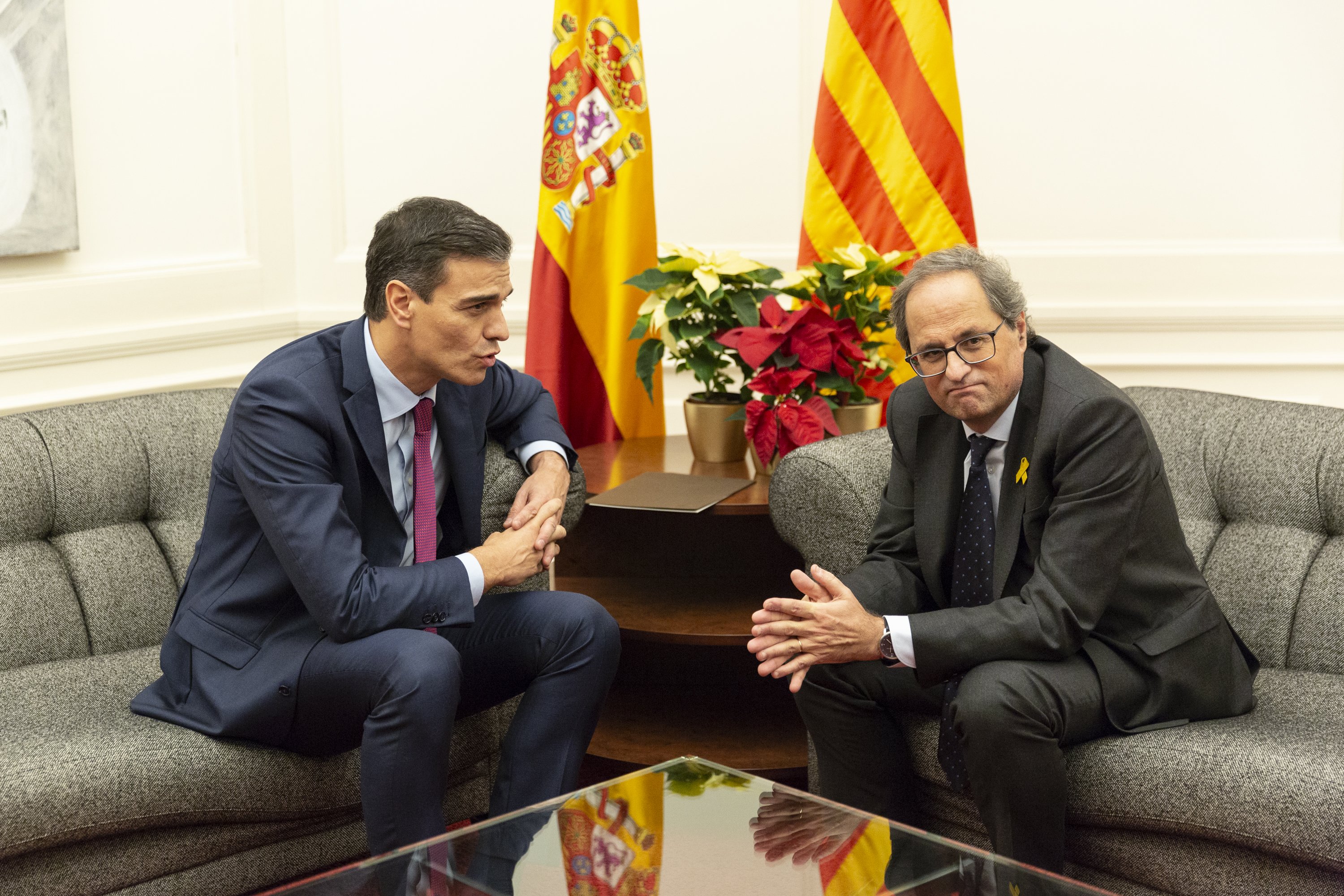He may have said one thing, but his budget says another: Pedro Sánchez's government won't fulfill the third additional provision of Catalonia's Statute of Autonomy. Specifically, Catalonia is set to receive 16.8% of the state's total investment in 2019, under their proposed budget, below the 19.2% its GDP represents of Spain's total.
The third additional provision of the Statute says that the state's investment in infrastructure in Catalonia should be the same as Catalonia's contribution to Spain's GDP. In the press conference after last Friday's cabinet meeting, minister Maria Jesús Montero said that the plan "complied with the Statute", a claim she repeated in the Congress in Madrid this Monday.
The reality, however, is slightly different. In a significant increase with respect to previous years, Catalonia will receive 2.051 billion € (£1.8 billion; $2.4 billion) in investment of the 12.182 billion between all the autonomous communities. To this must be added 200 million € (£180 million; $230 billion) from the public works ministry following a ruling by the Supreme Court. That increases the percentage to 18.5%, but this is still be short of 19.2%. The minister says they're "similar figures" and good enough.
They also emphasise the increase with respect to the investment by Mariano Rajoy's government in recent years. In 2018, the state budgeted 1.349 billion in total investment for Catalonia (13.3%); in 2017, 1.149 billion (13.4%) and in 2016, 1.181 billion (10.7%). In infrastructure alone, the real eventual investment fell short in each case. So, Sánchez marks an improvement on Rajoy from a Catalan perspective, but still doesn't meet the promises.
Catalonia is second in terms of basic investment (excluding the court's verdict), behind Andalusia on 2.132 billion (17.5%). It's followed by Madrid on 1.249 billion (10.3%) and Valencia on 1.189 billion (9.8%). In terms of investment in infrastructure alone, it comes first.
Broken promises
This year's budget would mainly increase investment in infrastructure, social benefits and the autonomous communities, but the numbers don't meet the levels Catalonia was promised.
Montero, the treasury minister, said that the budget "perfectly honours [the commitments] to Catalonia", but the numbers disagree. The latest GDP figures, for 2017, show that Catalonia's GDP represented 19.2% of the Spanish total.
The minister played down the shortfall between the budgeted figure and that defined by the Statute: "18.5% or 19%, they're similar figures".
Sánchez's budget is currently before the Congress, still lacking the votes it needs to get the green light. These votes will likely have to come from the pro-independence Catalan parties.
"Magnificent accounts for Catalonia"
Montero has urged pro-independence parties to vote in favour of the budget. As a fallback, she's made the same request of Cs and PP. "I've now spoken with PDeCAT and ERC, but they'll see that they're magnificent accounts for Catalonia", she said, "there's always margin for dialogue within constitutional spaces".
As on Friday, Montero said that the proposed 2019 budget represents a "necessary change of course" after years of austerity under PP. For example, 57% of spending is earmarked for social policies.
The minister also described the budget as a "dam" against the far right. "It strengthens the welfare state in the face of those looking to weaken it, defends equality in the face of those who want to bring back dark periods, defends the economic recovery and the groups hardest hit during the recession in the face of those who had forgotten them," she said.
Pending 200 million
The extra 200 million was agreed upon by the bilateral Spain-Catalonia commission, following a Supreme Court sentence in November 2017 on the third additional provision. The ruling set out 759 million euros of compensation, to be paid in installments until 2022.

